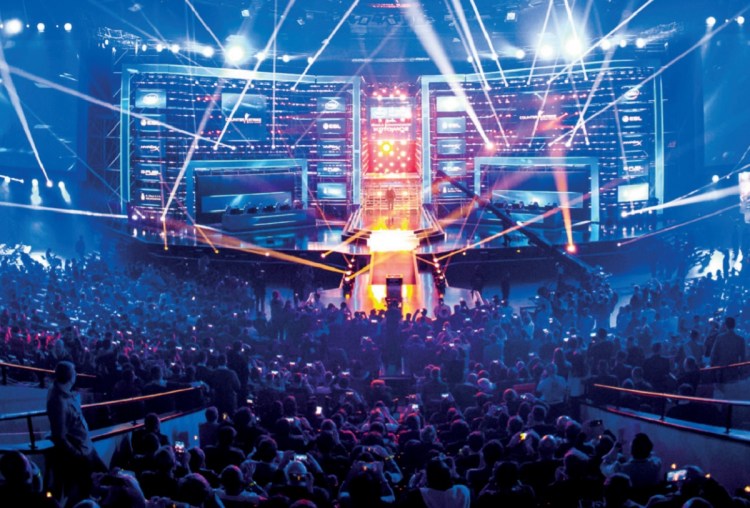There’s a lot of hype in esports. But there’s also a lot of growth. Lots of investors have jumped on the bandwagon in the past few years, and Daniel Mitre is one of them.
Mitre just became the CEO of New Wave Esports, an acquisition, investment, and technology development company that is focused on competitive gaming. He teamed up with Trumbull Fisher, the president of New Wave Esports. Fisher is a finance guy who made a lot of money with cannabis and mining investments in Canada. Mitre brings gaming expertise.
Now esports is the shiny new thing. But should companies invest in the space now, or wait until the revenues are more solid? Esports has hundreds of millions of fans, but it’s not making as much money as the NBA yet.
I talked to Mitre recently about the hype and the reality. Here’s an edited transcript of our interview.
June 5th: The AI Audit in NYC
Join us next week in NYC to engage with top executive leaders, delving into strategies for auditing AI models to ensure fairness, optimal performance, and ethical compliance across diverse organizations. Secure your attendance for this exclusive invite-only event.
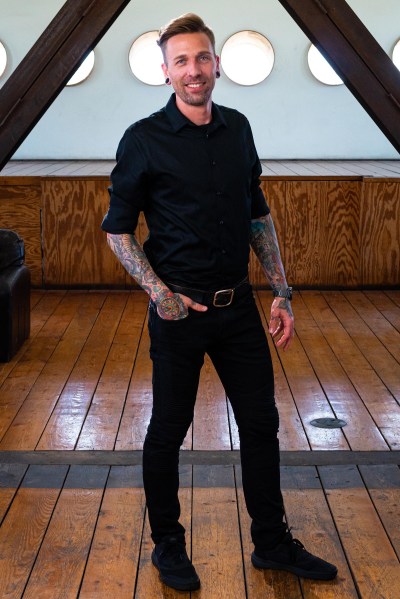
Above: Daniel Mitre of New Wave Esports.
GamesBeat: When did you join New Wave Esports?
Daniel Mitre: We started New Wave at the end of last year, technically, and then really got the ball rolling here around January and February of this year. We started it all together. I was one of the original founding members. I joined initially as CMO. We had a CEO at the time, and he got us up to some good operational excellence and then exited. He’s still in the industry doing another side thing.
We were running the company together as a single unit for a while, and then the outward impression was that we needed a CEO with gaming experience and esports experience. It made sense to funnel me in. This week we announced I’m taking the reins as CEO and leading our very qualified team in innovating esports where we can.
GamesBeat: What does New Wave do?
Mitre: I’ll start with our backgrounds. I like to qualify the team and explain where we’re coming from. I’ve been in the industry for about 17 years, mainly on the publishing side. I started from humble beginnings in QA. That gave me a good background on how games are developed and the dynamic with the publisher. I moved on into community management under Chris Munsell at Sierra Online. We were bringing a lot of the new digital titles to the new Xbox Marketplace and PlayStation Store.
We went through the boxed product transformation. We went from MySpace to YouTube to Twitch, the influencer ecosystem. Now we’re seeing, on the North American front, the competitive esports transition, which is absolutely exciting. I worked at THQ, Sega, and recently Electronic Arts. I worked on franchises like Battlefield, FIFA, and Madden. Saints Row the Third was absolutely nuts. That campaign was wild.
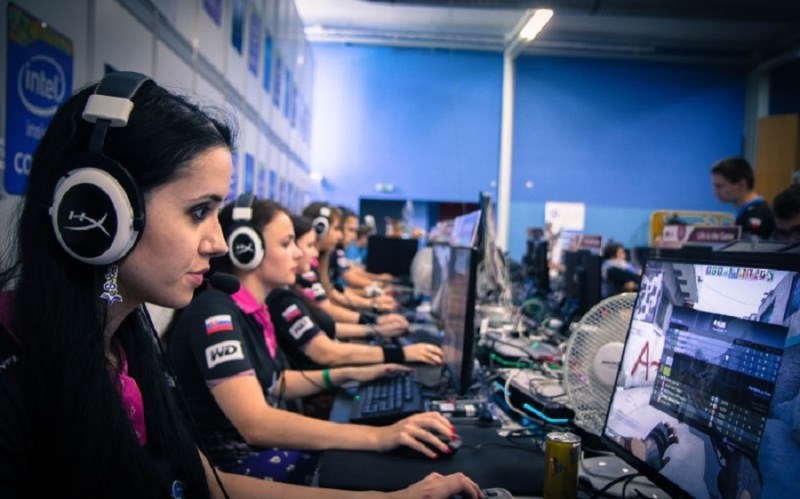
Above: Women are changing esports and broadening its appeal.
I think my love for competitive gaming–I started playing Counter-Strike 1.4 in the CAL leagues. We were pretty successful here in the southwestern division. This is about 15 years ago. We didn’t know that esports would blow into what it is now. Come November of last year, I had a great opportunity to meet up with my current colleague Trumbull Fisher, the president of New Wave. He brings his experience in capital markets. He’s about a 13-year veteran of the finance industry. He’s run hedge funds. He’s raised up to $3 billion in capital for cannabis and mining companies throughout Canada. He brings his expertise in financial movement and capital markets to New Wave.
I consider us a double-headed dragon. I’m the esports guy. He’s the finance side. Together we’re bringing some serious fire. The rest of our team is very much a blend of both areas. We have financial advisors. We have experts in esports and gaming.
As far as what we’re doing with New Wave, we’re an acquisition, investment, and technology development company. Our purpose is to elevate and innovate in the esports and competitive gaming industries. We do that by taking capital, placing that in small and mid-size companies, and helping them flourish. We’re unlike a traditional investment group or a venture fund or an ETF, where they just place the money, check in quarterly on how it’s performing, and then move on. We get really involved.
We provide advisory services. A lot of times we take advisory roles in those companies for additional stock options or additional financial trinkets. Even if not, we still draw synergies within our portfolio. We pull from the gaming network that I’ve created over 17 years, pull from the financial network that our president has created, and bring in a lot of different partnerships, sponsorships, and capital raises where needed for working capital. We get very involved in these companies. We take on their top and bottom lines as part of our own valuation.
GamesBeat: I remember talking to Mike Sepso about a consulting company he started in New York to do a lot of this kind of thing as well, Electronic Sports Group. Does it sound like what you’re doing is similar to his company, or different in some ways?
Mitre: He’s providing consultancy for companies, whether they’re a team, an org, an event, an activation, helping them refine their revenue streams and set up their businesses to be profitable in this emerging market. We certainly do that, and not only just consultancy, but we bring in the working capital to make it happen. We very much advise on how to use that working capital, how to deploy that across their revenue streams, no matter what sector within esports they sit in. We do take that extra step and bring in the proficiency and expertise that we have on our side.
GamesBeat: Where are you based?
Mitre: I’m based in Los Angeles, which is beneficial for me. We have a lot of Silicon Beach emerging. You have Red Bull and the Santa Monica esports arena, as well as just a great network down here. I’m a quick flight from San Francisco. We’ve developed a great network up in Silicon Valley. I have team members in Vancouver, who sit there on the financial streets and have their ears to the ground, especially with the Aquilini deal coming through. There’s a lot of interest on the Vancouver side.
On the east coast side we have our main headquarters on Queen Street West in Toronto. There’s a lot of money movement coming out of Toronto. A lot of the investors up there made a killing in cannabis. They saw their 3X and 4X multipliers. Then they made a killing in mining, and now that’s all washed up. They’re asking, “Okay, what’s next?” All their analysts are saying it’s esports. It’s perfect timing to say, “Guess what, we’re experts in esports. Let’s take your capital and receive the multipliers there while it’s early.”
Esports is due for a market correction, as you know. Those companies that are operating with great business practices, being frugal with their money but also understanding where the revenue streams really do lie, they’re going to come out on top.
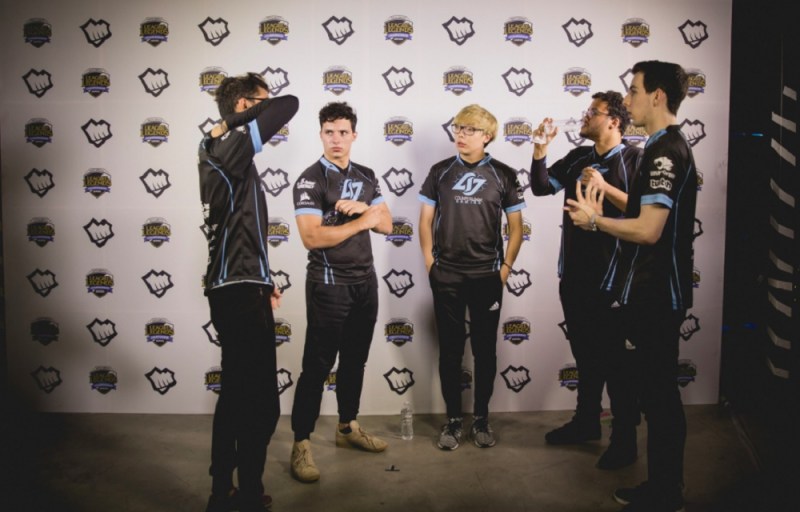
Above: The Philadelphia 76ers own Team Dignitas, an esports team.
GamesBeat: What do you think about that Kotaku story that ran, about the problems that esports has? That was throwing a lot of cold water on the space.
Mitre: I largely agreed with some of it, especially the breakdown of inflation in viewership. When you look at the way Twitch counts views, if you close the browser and open it back up, that counts as another unique view. If one person is watching on three devices, it counts as three unique views. You do get a bit of overinflation there.
We all benefit if we adopt a Nielsen type of rating system, whether it’s a single IP watching for X amount of time and then triggers a unique view. I think that’ll give us the right audience size, which will then give us accurate sponsorship numbers and CPM models. That will give us a good, accurate representation of the real size of this audience. As business planners, that will allow us to plan out our fiscal year much better, plan out our product timelines and our product development of an actual audience that we have a good pulse on.
As I say, I think there is a market correction coming through. Those who know the industry, or at least who are trying to educate themselves, will be resilient through it. But if you’re a business person you know where the overvaluations lie. You know where the overinflation lies. You’re putting on your armor to weather through it.
GamesBeat: What would you say are some of the most interesting deals that have happened in esports?
Mitre: There are some big headlines. You have Nadeshot, who came from being very much a boots-on-the-ground athlete and made a name for himself doing his content programming, and then started leading 100 Thieves. It’s phenomenal seeing how he could bring in certain athlete and celebrities, build this ecosystem, and bring in the right executive team to continue raising $30-40 million. That tells me right there that there’s serious appetite from non-endemic professionals who want to fuel esports, make money off it, but also propel this passionate industry forward.
His ability to raise that $30-40 million tells other companies, “Hey, we can do this too. We need to start tapping into some of these investors.” As long as he’s able to turn that around and provide some serious value on the revenue side — help these shareholders find liquidity, find continuing multipliers on their investment — that will help us all to win. We all need a win.
The big Aqualini deal coming through, as they acquire Luminosity, is going to be a big catalyst. But it’s all the small ones that actually interest me. I look at the esports industry as a pyramid. At the top are the likes of 100 Thieves, Gen.G, these big headlining money movers. But we can’t ignore the bottom of the pyramid, the 99 percent who are either casual players or athletes on the rise. We need to develop solutions for them and bring in finances where they connect.
It’s great to see $3.5 million prize purses coming through on a Fortnite World Cup weekend, but that only benefits one organization. How do I build a platform where I can monetize 3 million users at 25 cents each and provide them with a great value and service where they feel they’re inspired to continue contributing to the esports industry? That’s where I balance with these big headlines. We need to build the foundation of esports. We need to continue contributing to it. There’s a lot of little deals that play into that, and I’m excited about them.
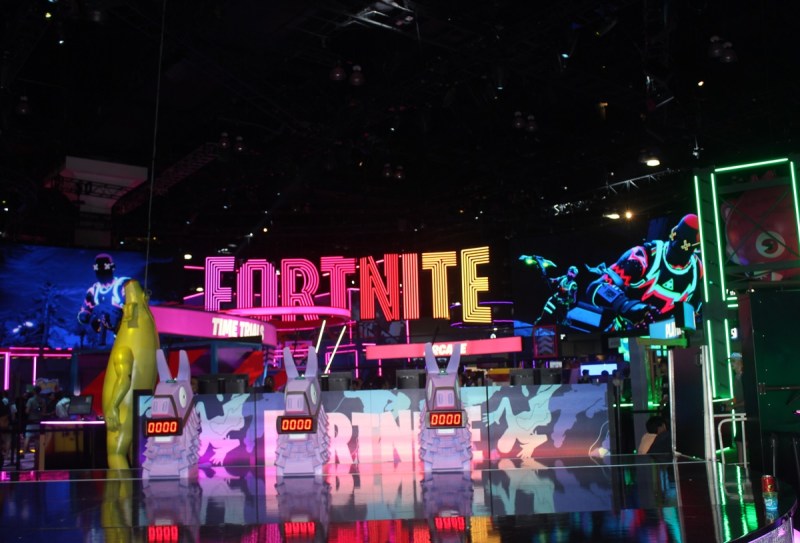
Above: Fortnite booth at E3 2019.
GamesBeat: Some investors are pouring lots of money in, almost monthly, like the Bitkraft folks. What do you think about the rapid-fire level of investment that’s happening from some companies out there?
Mitre: It’s a different approach. There’s the shotgun approach, where you throw out–here’s $100,000, here’s $250,000, maybe on up to $500,000. If you have a big enough capital treasury to do that, then all you need is 10 percent of that to really make a killing and have a good return on that. That’s certainly one investment play, and that helps with your valuation. But you’re spread so thin, and you’re really banking on some of these companies to outperform the others to make up for the slack of the rest of your portfolio that’s not performing.
I don’t take that approach. The reason why we don’t is because we’ve run businesses, individually and all together. We know what’s fiscally responsible and how to plan and how to help other companies plan. We understand where the real revenue streams are and if they’re going to profitable. We take the arrow tactic. We really want to sharpshoot the great companies out there that have the propensity and the tools to succeed.
We’ve seen that already. Our formula is proving out. Circling back on some of our strategy here, we see four major growth opportunities in the industry. The first one is teams, leagues, and orgs. I don’t need to elaborate there. We’ve been talking about that. The second one is platforms and networks. That could be Insights.gg, where they’re creating a platform for coaches to work with their teams and athletes remotely and help them through their plays. Or esports betting platforms. That’s coming online because the legislation passed last year that opened up wagering in a lot of states in the U.S. The third is events and activations. That’s boots on the ground, the raw, visceral experience of esports in its truest form. The camaraderie and sense of community when you’re in a venue. And then the fourth is emerging technologies.
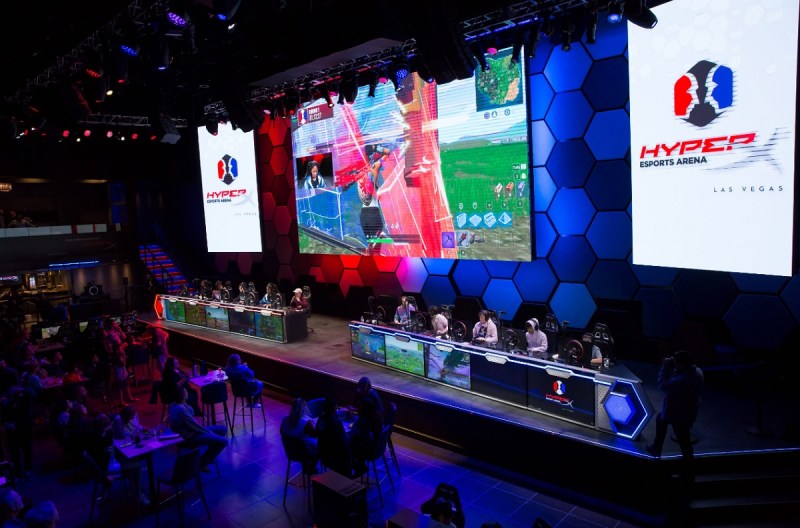
Above: Esports Arena in Luxor Hotel.
The reason I detail all that out is we’ve already placed investments in each one of those verticals. We’re continuing to place one or two more investments or acquisitions in each one of those verticals. We’ve seen success so far. We invested a sizable chunk and got two advisory seats on Tiidal. Tiidal owns and operates Canada’s premier team, Lazarus Esports. Lazarus, we worked with them to refine their strategy with their rosters and their content programming.
Over the Fortnite World Cup, they came in second place in duos, fourth place in singles, and on Monday they won a side brawl. That got them just over $3 million. That was a big catalyst in the industry and alerted mass audiences — oh, shit, there’s a lot of money to made in esports — but even bigger, now it’s tapping into much larger audiences. Now we’re seeing more deal flow coming through. We’re seeing a sustainable ecosystem and big, serious revenues coming in. That will continue fueling these companies.
Detailing our portfolio a bit further, in the platforms and networks category, we invested in PlayLine. PlayLine is an esports betting platform, alongside traditional sports. They’re one of the few companies that are bottom-line profitable. They have about a quarter-million users registered, turning anywhere from $400 to $450 ARPPU. They’re doing great. They’re projected to have about 1.6 million users over the next two years. They had a NASCAR collaboration just recently. They’re at all the NASCAR races. They have a big Twitch Rivals program coming up, which puts them on the esports map.
Third, we invested a sizable chunk into Even Matchup Gaming. We started an expenditures review committee with them. Now we’re helping them with their finances and bringing in marketing components. They run and operate the largest Super Smash Bros. tournaments in Toronto and in the tri-state area. They’re expanding to a North American circuit. They run 80 events a year. They’re hardworking, and because of that they’ve had a great profit margin. They’re bottom-line profitable as well.
What they’re doing is fueling the grassroots and collegiate scenes around fighting games. They have awesome, valuable partnerships with Nintendo, Red Bull, BenQ, and some new non-endemics coming through. We’re excited about that, because that’s where the passion of local communities is seen. If you’ve been to an esports event, it’s absolutely wild. Anyone who’s never been, I always tell them to go to an event. You’ll see firsthand why this is a big deal.

Above: The Luxor Hotel in Las Vegas is ready for esports.
Last, emerging technologies is an important place to keep our ears to the ground. 5G networks are coming through, and that’s going to impact the way we digest and watch live streams, and how play on our mobile devices. What’s AR going to do? What’s VR going to do? We acquired a company called Thunderbolt, based out of Los Angeles. They develop solutions for emerging markets. They’re in a concept, an exploratory phase, and hope to get tools and platforms out next year.
The last thing I’ll mention, we’re working hard and moving fast because we’re going public on the Canadian Securities Exchange in October. We just completed our listing. I have my stock ticker already. I can’t announce it yet. There might be some changes.
But what we’re excited about with that is–a lot of people ask, “Why go public? Why not just stay private?” This instantly opens up liquidity for our shareholders, so now we’re returning back to the street, the financial street, which allows us to build confidence in a lot of our investors to raise more capital and expand New Wave’s portfolio. We also open up the public investment vehicle, to allow us to raise more capital and inject the working dollars needed for our portfolio to continue to thrive. As we acquire companies, we do that via share exchange, and we inject that working capital in, or we just make pure cash investments and get advisory roles.
We’re excited. That’s certainly going to put us even further on the map. We’re the world’s first esports investment company that’s going public. I’m pretty sure there will be some that follow suit shortly afterward.
GamesBeat: Do you have anybody who might get a little worried that you have to publicly report some things that they’d rather keep secret?
Mitre: No, not at all. Tiidal and PlayLine, they’re projected to go public anyway some time next year. Some of our private companies are pretty transparent. The public disclosures on a quarterly basis aren’t really a concern for me. We’re not necessarily working with proprietary technologies. Obviously when we start going down that road, there will be some nuances and sensitivities, but we’ll work through all that.
We want public transparency. We want to show how we’re building esports. That transparency can work for us if we do it right.
